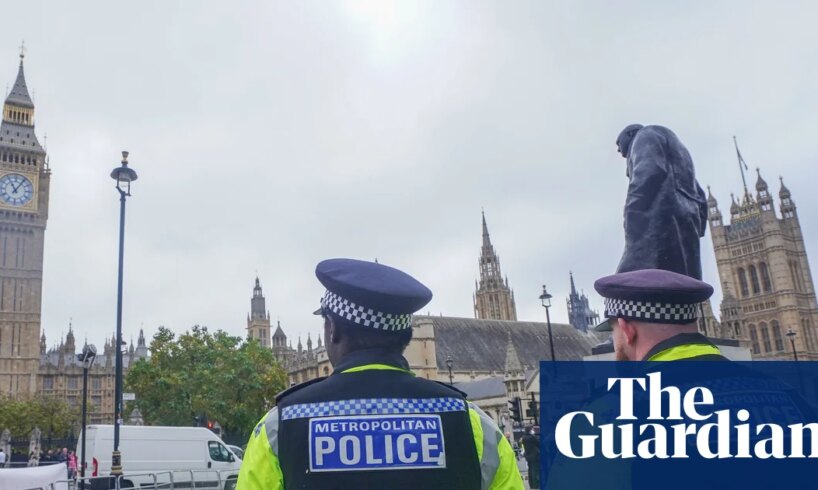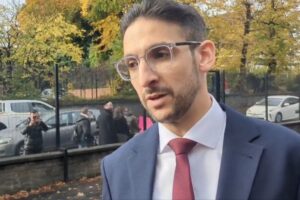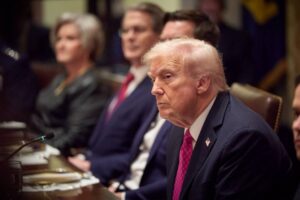
The director of public prosecutions should explain why he felt he could not proceed with the trial of two men accused of spying for China, a government minister has said after No 10 published key evidence in an attempt to draw a line under the row.
Stephen Kinnock said the government was “deeply disappointed that the prosecution didn’t go ahead” and that Stephen Parkinson was “the best person to explain” why the Crown Prosecution Service (CPS) felt the government’s evidence did not meet the bar.
Kinnock’s comments, which were echoed by the Conservative MP Alicia Kearns, ramp up pressure on the CPS over the sudden abandonment of the trial last month.
Charges were dropped against Christopher Cash, a former parliamentary researcher to Kearns and Tom Tugendhat, and Christopher Berry, a teacher, after the CPS said the government had not provided evidence that China represented a “threat to the national security of the UK”. Cash and Berry have denied any wrongdoing.
Following accusations that they interfered with the trial to protect the UK’s trading relationship with China, ministers published the three witness statements submitted to prosecutors by the deputy national security adviser, Matthew Collins, late on Wednesday.
In his statements, written in 2023 and 2025, Collins wrote that Beijing’s intelligence agencies “conduct large scale espionage operations” which “harm the interests and security of the UK” and “threaten the UK’s economic prosperity and resilience, and the integrity of our democratic institutions”.
Asked whether this demonstrated that the error rested with the CPS, Kinnock told Sky News: “I believe the DPP told MPs yesterday that he felt the evidence was 95% of the way there, but there was a 5% gap that was missing. I think he’s the best person to explain what that 5% that was missing was.”’
He stressed that claims Labour deliberately collapsed the trial were “patently nonsense” and that ministers believed a major reason it did not go ahead was “the abject failure of the previous government to update the legislation”.
Kearns said she would be questioning Parkinson on Thursday on why prosecutors did not push ahead with the trial. “In my view the CPS should have proceeded with this and that’s a discussion I will have with the DPP when I see him today for the first time,” she told the BBC Radio 4 programme.
Kearns added that “when the government was informed the case was at risk they had a duty to take action”. Downing Street revealed on Wednesday that Keir Starmer was informed that the case was on the brink of collapse days before the CPS announced it, but insisted it was not for him to intervene in the matter.
The controversy has turned the spotlight on the espionage activities carried out by China’s intelligence services.
On Wednesday, Dominic Cummings, who served as Boris Johnson’s chief adviser, claimed he and the prime minister were briefed in 2020 that China had breached secure high-level systems involving Strap material, a security classification for highly sensitive information, and this had never before been made public.
But the Cabinet Office, senior cybersecurity officials and ministers have since strongly denied that the “most sensitive government information” had been compromised.
Ciaran Martin, who was head of the National Cyber Security Centre at the time of the alleged breach, said in a statement that it was “categorically untrue that in 2020 briefings were given to the effect that the Chinese state had compromised the bespoke systems used for circulating Strap and other highly classified state secrets”.
He said that both the cabinet secretaries who served in 2020 confirmed to him that they were “unaware of ever receiving any briefing about Chinese state compromise of the classified IT systems” and never gave any such briefing to Johnson and Cummings.





